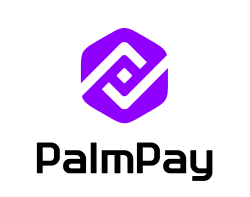

Africa, a continent blessed with abundant natural resources, has long faced the challenge of transforming its wealth beneath the soil into sustainable economic prosperity above it. One promising solution lies in the establishment of Sovereign Wealth Funds (SWFs), state-owned investment vehicles designed to manage surplus revenues for long-term stability and growth. While several African nations have taken significant steps toward creating these funds, the broader continent still has untapped potential in harnessing this tool for economic transformation.
Across the continent, sovereign wealth funds have emerged as essential instruments for managing resource wealth. Libya’s Investment Authority, the largest SWF in Africa, oversees approximately $67 billion in assets despite enduring political instability and international sanctions. Nigeria’s Sovereign Investment Authority is a model of diversification, channeling its resources into infrastructure development, future generations’ savings, and economic stabilization. Similarly, Botswana’s Pula Fund and Angola’s Fundo Soberano de Angola safeguard wealth derived from diamonds and oil, ensuring resources contribute to national prosperity. Mozambique has recently joined this effort, introducing a framework for its Fundo Soberano de Moçambique to capitalize on revenues from natural gas exploration. These developments underscore a growing recognition of the importance of prudent resource management across Africa.
Egypt’s Sovereign Wealth Fund, established in 2018, exemplifies the strategic use of SWFs to channel investments into sectors such as healthcare, utilities, and renewable energy. Morocco’s Ithmar Capital, operational since 2011, focuses on driving innovation in infrastructure and green energy. Ethiopia’s Sovereign Wealth Fund, launched in 2022, has quickly become a significant player, managing $46 billion to bolster infrastructure and state-owned enterprises. Rwanda’s Agaciro Development Fund emphasizes self-reliance and socio-economic stability, while Senegal’s Fonds Souverain d’Investissements Stratégiques and Namibia’s Welwitschia Fund demonstrate how strategic initiatives can secure long-term financial stability for emerging economies.
Africa’s vast resource wealth—from Nigeria’s oil reserves to Tanzania’s natural gas and the Democratic Republic of Congo’s mineral deposits—underscores the potential of sovereign wealth funds to address economic challenges. A Pan-African approach could transform resource dependency into diversified and inclusive growth. By fostering cooperation, pooling resources, and advancing regional integration, sovereign wealth funds can drive cross-border infrastructure projects, enhance trade connectivity, and attract significant foreign investment. Transparent and professionally managed funds play a pivotal role in building investor confidence and unlocking transformative co-investment opportunities.
The success of Norway’s Government Pension Fund Global offers valuable lessons for Africa. Norway has set a global benchmark by diversifying its portfolio, adhering to strict governance principles, and prioritizing sustainability. These practices emphasize accountability and resilience, qualities that African nations can adopt. Establishing independent boards, conducting regular audits, and aligning with international standards like the Santiago Principles are crucial steps. Furthermore, prioritizing green investments aligns with global trends and addresses Africa’s urgent need for climate resilience.
The road to effective sovereign wealth fund management in Africa is not without its challenges. Governance issues, corruption, and political instability often hinder efforts to manage resources effectively. However, these obstacles also create opportunities for innovation. Capacity building, partnerships with global institutions, and the integration of digital tools for revenue tracking and investment analytics can strengthen fund operations. Community engagement is equally critical, fostering trust and ensuring that investments align with the needs of local populations.
The establishment of sovereign wealth funds across Africa represents a profound opportunity to transform the continent’s resource wealth into shared prosperity. By learning from global successes and fostering regional cooperation, African nations can create a robust network of funds that stabilize economies, drive sustainable development, and strengthen integration. A unified approach ensures that no country is left behind, paving the way for a brighter and more equitable future for generations to come.


